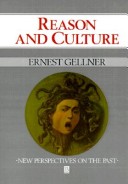New Perspectives on the Past
1 primary work • 2 total works
Book 5
Nationalism is one of the most powerful forces in the modern world, yet it is surprisingly little studied and only imperfectly understood, either by its adherents or its opponents. Its irruption into the modern world is often explained as a resurgence of primitive, atavistic instincts, or as a delusion fostered by a few theoreticians, politicians or propagandists.The present volume interprets nationalism in terms of its social roots, which it locates in industrial social organization. A society that aims for affluence and economic growth, Professor Gellner argues, depends on innovation, occupational mobility, mass media, universal literacy, and education in a shared, standard idiom. Taken together these transform the relationship between culture and the state. The functioning of the society depends on an all-embracing educational system, tied to one culture and protected by a state identified with that culture. The principle one state, one culture makes itself felt, and political units which do not conform to it feel the strain in the form of nationalist activity.
The disparity between the history of the idea of rationality - from Hobbes to Rawls - and what constitutes and has constituted "reasonable" behaviour form the subject of this book. The institutions of state - government, the law, the military - are based, in the West, on the principle that human beings, if not always reasonable, are at any rate capable of being rational: those who serve the state usually believe that their actions and decisions are also informed by this principle. This is the theory, but how then do we explain, for example, why it has so frequently happened that two countries supposedly acting in their own self-interest embark on a war which does both parties considerable harm? In the course of his investigation, Professor Gellner examines and compares the institutions and ideas of secular societies in which reason is believed to inform belief with those of avowedly theocratic (including Moslem) societies where belief informs reason.

